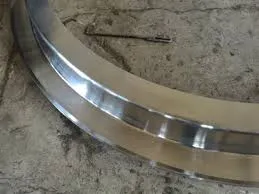- Afrikaans
- Albanian
- Amharic
- Arabic
- Armenian
- Azerbaijani
- Basque
- Belarusian
- Bengali
- Bosnian
- Bulgarian
- Catalan
- Cebuano
- China
- China (Taiwan)
- Corsican
- Croatian
- Czech
- Danish
- Dutch
- English
- Esperanto
- Estonian
- Finnish
- French
- Frisian
- Galician
- Georgian
- German
- Greek
- Gujarati
- Haitian Creole
- hausa
- hawaiian
- Hebrew
- Hindi
- Miao
- Hungarian
- Icelandic
- igbo
- Indonesian
- irish
- Italian
- Japanese
- Javanese
- Kannada
- kazakh
- Khmer
- Rwandese
- Korean
- Kurdish
- Kyrgyz
- Lao
- Latin
- Latvian
- Lithuanian
- Luxembourgish
- Macedonian
- Malgashi
- Malay
- Malayalam
- Maltese
- Maori
- Marathi
- Mongolian
- Myanmar
- Nepali
- Norwegian
- Norwegian
- Occitan
- Pashto
- Persian
- Polish
- Portuguese
- Punjabi
- Romanian
- Russian
- Samoan
- Scottish Gaelic
- Serbian
- Sesotho
- Shona
- Sindhi
- Sinhala
- Slovak
- Slovenian
- Somali
- Spanish
- Sundanese
- Swahili
- Swedish
- Tagalog
- Tajik
- Tamil
- Tatar
- Telugu
- Thai
- Turkish
- Turkmen
- Ukrainian
- Urdu
- Uighur
- Uzbek
- Vietnamese
- Welsh
- Bantu
- Yiddish
- Yoruba
- Zulu
Aug . 21, 2024 16:39 Back to list
Exploring the Benefits and Applications of Gravity Casting in China
The Advancements and Significance of Gravity Casting in China
Gravity casting, a process that involves pouring molten metal into a mold under the influence of gravity, has gained significant traction in the manufacturing sector of China. This traditional method has been enhanced by modern technology, making it a preferred choice for producing high-quality metal parts across various industries, including automotive, aerospace, and consumer goods.
In recent years, China's gravity casting industry has experienced remarkable growth, driven by the country's booming economy and expanding manufacturing capabilities. The uniqueness of gravity casting lies in its ability to produce complex shapes with excellent surface finish and dimensional accuracy. Unlike other casting processes that may require additional machining or finishing, gravity casting often yields components that meet stringent specifications straight out of the mold, reducing overall production time and costs.
The Advancements and Significance of Gravity Casting in China
China's investment in technology and innovation has further propelled the gravity casting industry forward. Modernized casting equipment and simulation software have significantly improved the quality and efficiency of the casting process. Advanced technologies, such as robotic automation and real-time monitoring systems, have been integrated into the production lines, allowing manufacturers to maintain tighter tolerances and reduce defects. Additionally, the implementation of computer-aided design (CAD) and computer-aided manufacturing (CAM) has streamlined the design process, enabling rapid prototyping and quicker time-to-market for new products.
china gravity casting

Sustainability is another crucial factor driving the changes in the gravity casting landscape in China. As environmental regulations become stricter, manufacturers are under increasing pressure to adopt more sustainable practices. Gravity casting is inherently more environmentally friendly compared to other methods due to its lower energy consumption and material wastage. By focusing on recycling scrap metal and utilizing more sustainable production methods, Chinese manufacturers can achieve not only cost savings but also reduce their environmental footprint.
The demand for gravity casting is not limited to domestic markets; China has also positioned itself as a significant player in the global market. With its robust manufacturing infrastructure and skilled workforce, Chinese gravity casting companies are exporting their products worldwide, competing on quality and price. As global industries increasingly seek cost-effective manufacturing solutions, the advantages offered by China's gravity casting capabilities are becoming more recognized.
Nevertheless, the gravity casting industry in China faces challenges, including competition from other casting methods and fluctuating raw material prices. To maintain its competitive edge, the industry must continuously invest in research and development, focusing on innovative materials and process improvements. Collaboration between industry stakeholders, researchers, and policymakers will be essential to cultivating a sustainable and globally competitive gravity casting sector.
In conclusion, gravity casting has established itself as a vital component of China's manufacturing landscape. With advancements in technology, a focus on sustainability, and a growing export market, the future of gravity casting in China appears promising. As industries continue to evolve and demand high-quality, efficient, and environmentally friendly solutions, gravity casting will undoubtedly play a key role in meeting these expectations.
-
8mm Thin-Walled Cast Steel Manhole Cover Pallet Bottom Ring | Durable
NewsAug.04,2025
-
Premium Cast Iron Water Main Pipe: Durable, Corrosion-Resistant
NewsAug.03,2025
-
Durable Cast Iron Water Mains | AI-Optimized Systems
NewsAug.02,2025
-
High-Efficiency Propane Boiler for Baseboard Heat | Save Energy
NewsAug.01,2025
-
Premium Source Suppliers for Various Gray Iron Castings
NewsJul.31,2025
-
Durable Cast Iron Water Main Pipes | Long-Lasting
NewsJul.31,2025


